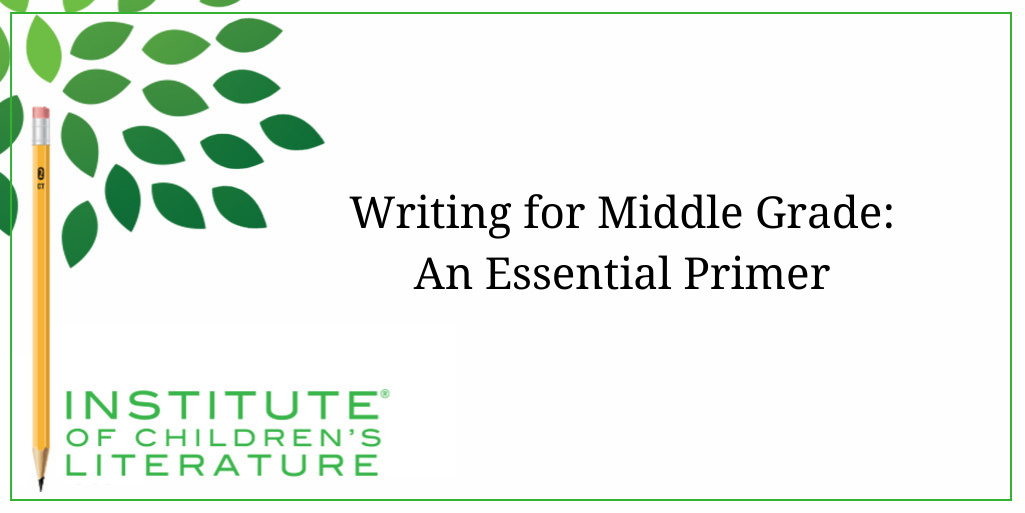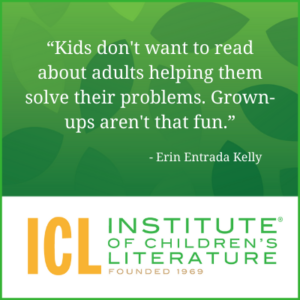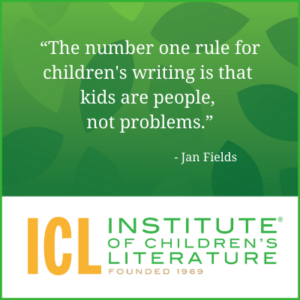
5 Ways Writers Can Prep for 2025 Goal Setting
Before we roll on to the new writing year, let’s harness our optimism for the blank slate before us and prepare for our 2025 Goal Setting just for writers.
Beginning Tuesday, July 22, 2025 at 10 PM CT through Wednesday, July 23, 2025 at 4 AM CT, we will be performing scheduled maintenance to update our website.

We teach our students how to write and get published!
View our Course Catalog >
For quite some time, young adult novels have felt like the “hot” thing in publishing, especially with the young adult novel’s unique perspective on crossing that divide between childhood dependence and adult responsibilities while bearing the weight of all the changes that are unique to that time. There were simply so many stories to tell, and so many that had been left untold for so long. Readers were hungry for realistic stories of different lives.
These days, we are seeing another book awakening, and this time it’s middle grade novels. Agents are more and more mentioning middle grade novels (especially novels with adventures and new voices) on their manuscript wish lists. Publishers are adding new and exciting middle grade fiction. So it’s more than worthwhile to talk and think about the sorts of things that you should know when writing for middle grade novels.

Now, unless you’re writing historical fiction, you’ll be writing for middle grade kids who are living in the world today. This means kids who have technology available that was not part of the writer’s childhood. Today, many (if not most) children the age of your protagonist will have cell phones (in fact, they may use them in the classroom). They will be more likely to turn to the Internet than the library stacks when looking for answers. They will worry about different sorts of things than what worried us, like school shootings and disease. Being aware of the things children today must face will help you to write books that make sense to the reader and don’t feel “old fashioned.”
Kids can do more than we think. Kids can do more than they think. And young readers tremendously admire a competent main character. Overall, kids tend to see themselves as far more stoic than adults view them. Adults often judge children as too emotional, too kinetic, and just too much. But kids see themselves as doing their best in a tough situation.
You may remember childhood as idyllic, but it probably wasn’t. Kids often face fear, self-doubt, and frustration, and they handle it far better than we give them credit for. That’s one reason why they love books that show them as competent. They don’t have to be superhuman, but if the writer can sort out a way for the child to realistically deal with the challenges they face in the story, readers will approve. Writers who tend to send adults in to rescue the characters (or nag them or pour out wise advice on them) will often face problems selling a story to agents, publishers, and readers themselves.
One problem newer writers often have is the urge to parent the reader through the book and instill in them an appreciation for hard work, or make them more respectful toward adults, or simply make them different in some way the writer thinks is better. This is more of a problem in short stories for magazines than for books, but it still pops up even in book manuscripts. The number one rule for children’s writing is that kids are people, not problems.

When you ask middle grade readers which books they like and why, many of them will point to books that had exciting adventures (even if they weren’t primarily adventure novels) or that made them laugh. Humor can happen even in really serious books. Laughing in difficult situations is tremendously helpful. It keeps the reader engaged in the book and helps to balance the tension of the story. It’s quite possible for a book to be too tense and too upsetting, so lightening the air in a heavy book has considerable value.
Throughout November, we’ll be looking at writing for middle grade novels and stories, breaking down how to write the best, most successful book you can. It should be a fun ride. I hope you’ll join me every week for it.
With over 100 books in publication, Jan Fields writes both chapter books for children and mystery novels for adults. She’s also known for a variety of experiences teaching writing, from one session SCBWI events to lengthier Highlights Foundation workshops to these blog posts for the Institute of Children’s Literature. As a former ICL instructor, Jan enjoys equipping writers for success in whatever way she can.

Before we roll on to the new writing year, let’s harness our optimism for the blank slate before us and prepare for our 2025 Goal Setting just for writers.

Writers can be thin-skinned when it comes to getting feedback on their work. Let’s look at 4 ways to positively deal with constructive criticism!

Rejection is part of the territory when it comes to being a writer. Today we offer reflection for writers to help redirect your efforts after a rejection.
1000 N. West Street #1200, Wilmington, DE 19801
© 2024 Direct Learning Systems, Inc. All rights reserved.
1000 N. West Street #1200, Wilmington, DE 19801
© 2024 Direct Learning Systems, Inc. All rights reserved.
1000 N. West Street #1200, Wilmington, DE 19801
© 2024 Direct Learning Systems, Inc. All rights reserved.
1000 N. West Street #1200, Wilmington, DE 19801
© 2025 Direct Learning Systems, Inc. All rights reserved.
1000 N. West Street #1200, Wilmington, DE 19801
©2025 Direct Learning Systems, Inc. All rights reserved. Privacy Policy.
1 Comment
Interesting article. Thanks.
I was an instructor at ICL around 2000.